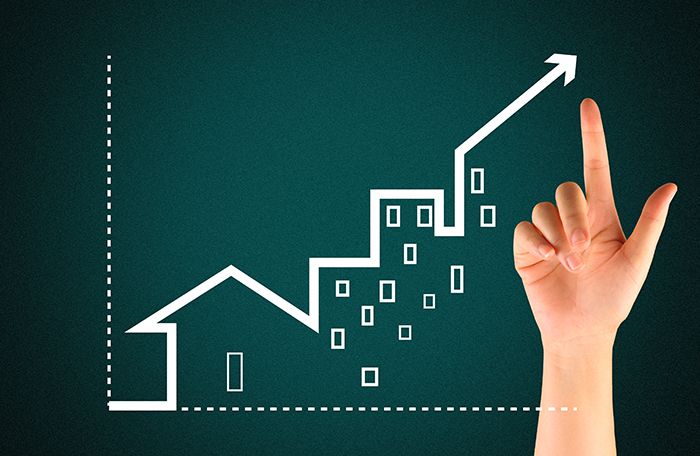
Annual growth of 14.3% in March means that the average house price is now 21% higher than in early 2020, shows a new report from Nationwide.
It describes detached properties going up by almost £68,000 and flats by £24,000.
On a monthly basis, prices rose 1.1%, the eighth increase in a row, leaving the average house price at £265,312, Nationwide adds.
“The continued buoyancy of housing demand may in part be explained by strong labour market conditions,” says Nationwide chief economist Robert Gardner.
He continues: “The unemployment rate has continued to trend down in recent months (to 3.9% in the three months to January) from already low levels. Wage growth has accelerated, though it is running below inflation.”
Gardner adds that the “significant” savings that many people managed to harvest during the lockdowns is, “also likely to have helped prospective homebuyers raise a deposit.”
Nationwide believes that households collected £190bn more than usual in savings earmarked for housing deposits since the start of the pandemic, or £6,5000 per household.
“Nevertheless,” Gardner says, “we still think that the housing market is likely to slow in the quarters ahead. The squeeze on household incomes is set to intensify, with inflation expected to rise further, perhaps reaching double digits in the quarters ahead if global energy prices remain high.
“Moreover, assuming that labour market conditions remain strong, the Bank of England is likely to raise interest rates further.”
Dashly.com founder Ross Boyd remarks: “The momentum in the property market isn’t surprising, it’s outright absurd.
“Logic suggests the property market should be cooling, not hitting further record highs but then the property market has a habit of defying logic. For prices to be 21% higher than before the pandemic struck is frankly astonishing.
“The major challenges facing the market right now are an abject lack of stock, interest rate rises and the extraordinary rise in the cost of living. Many households are really starting to feel the squeeze and lenders are looking at affordability in ever more forensic detail. This is likely to see the market slow as we progress through the year.”
And Garrington Property Finders chief executive Jonathan Hopper comments: “The best way to understand the speed at which property prices are rising is to put it in salary terms. In March alone, the average UK home rose in value by £5000 – that’s double the average worker’s monthly salary.
“You don’t need to be an economist to know that such a big mismatch between rising house prices and people’s earnings is unsustainable.
“Two factors will prove decisive in the coming months. As the spring bounce entrenches and more sellers come to market, improving supply will take some of the heat out of price rises.
“Meanwhile, the rising cost of living will gradually eat into would-be buyers’ disposable income and may prompt the Bank of England to raise interest rates further. As borrowing becomes more expensive, many buyers will pause for thought when stretching their budget.
Trussle head of mortgage operations Amanda Aumonier adds: “Households have seen their discretionary income fall by 19.5%, or £850 per year. Therefore, it is difficult to see how this will not start to impact the house buying pipeline, as buyers are forced to clamp down on their expenditure.”



